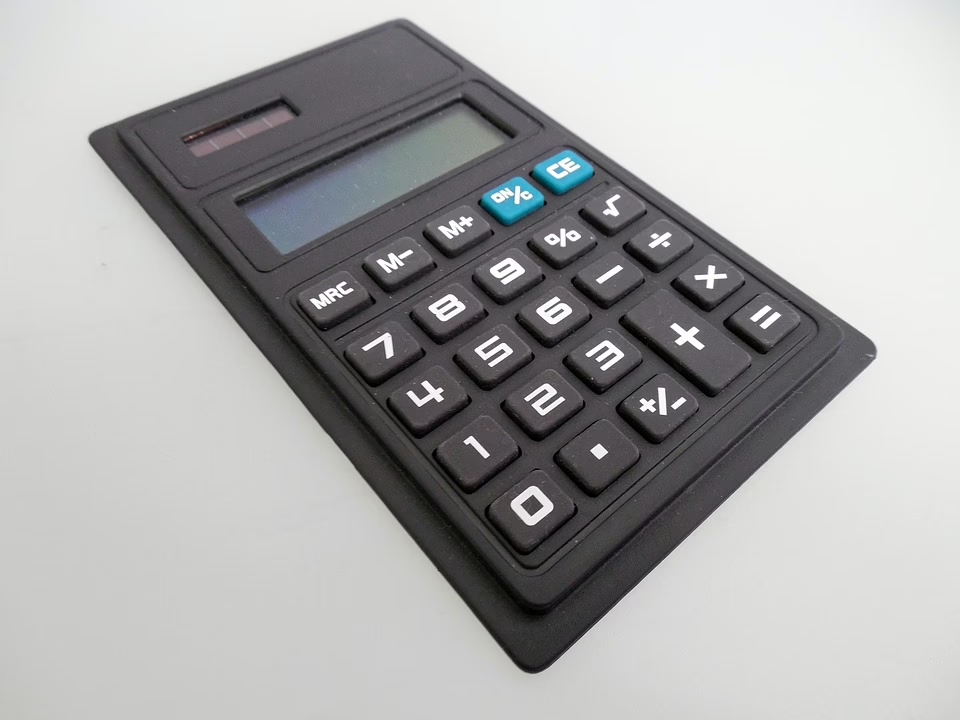Count on It: Why a Nutrition Calculator is Your Dietary Best Friend
In the contemporary landscape of health and wellness, the importance of nutrition cannot be overstated. With increasing awareness around diet’s role in overall health, individuals are seeking effective ways to manage their food intake and make informed choices about what they consume. Enter the nutrition calculator—a digital tool that has revolutionized the way we approach our dietary goals. This article explores how nutrition calculators work, their benefits, and why they should be considered essential tools for anyone serious about their health.
The Rise of Nutrition Awareness
Over the past few decades, knowledge around nutrition has moved from the realm of specialists to mainstream awareness. The rise of social media, health blogs, and documentaries has sparked interest in the intricacies of dietary choices. However, sifting through the sea of information can often lead to confusion. This is where a nutrition calculator becomes invaluable, serving as a grounding force amid the chaos.
Understanding Nutrition Calculators
What is a Nutrition Calculator?
A nutrition calculator is an online or mobile application tool that helps individuals track their food consumption by analyzing the nutritional content of various foods. Users input their meals, snacks, and beverages to receive instant estimates of calorie intake, macronutrient breakdown (carbohydrates, proteins, and fats), and micronutrient levels (vitamins and minerals).
How They Work
Most nutrition calculators operate on databases that catalog thousands of food items. By entering the type and amount of food consumed, users can instantly get nutritional values. Many calculators also allow users to create custom meals and recipes, making them highly adaptable.
The Benefits of Using a Nutrition Calculator
-
Transparency and Awareness
One of the most significant benefits of using a nutrition calculator is the newfound transparency it offers. By logging food intake, individuals can visualize their eating habits and identify areas for improvement. This awareness helps in making more informed choices. -
Personalization
Different people have different dietary needs based on factors such as age, gender, activity level, and health goals. Nutrition calculators enable personalization by allowing users to input their specific metrics. This ensures that the advice and insights provided are tailored to individual requirements. -
Goal Setting
Whether the objective is weight loss, muscle gain, or maintaining healthy cholesterol levels, a nutrition calculator serves as a guide to reaching those goals. Users can set specific targets for calories, macronutrients, and micronutrients, making it easier to stay focused and motivated. -
Behavior Modification
Tracking food intake can lead to behavioral changes. As users become increasingly aware of what they eat, they’re often motivated to make healthier choices. This mindfulness can result in long-term positive changes in dietary habits. -
Convenience
In the fast-paced world we live in, convenience is key. Nutrition calculators often come with mobile applications, allowing users to log their meals on-the-go. Many platforms also include barcode scanners, making it simple to input packaged foods.
Common Features of Nutrition Calculators
While various nutrition calculators exist, several features are commonly found across most platforms:
-
Database of Foods: Comprehensive databases that include nutritional information for common foods, brand-name items, and restaurant meals.
-
Macronutrient Tracking: Features that allow users to track dietary fats, carbohydrates, and proteins for balanced meals.
-
Micronutrient Tracking: Insights on vitamins and minerals, such as Vitamin D, calcium, and iron, are crucial for those with specific dietary needs.
-
Goal Setting: Users can set daily caloric and nutrient targets.
-
Progress Tracking: Many calculators allow users to track their weight and other health metrics over time.
-
Community Support: Some platforms include forums or social features that provide encouragement and accountability.
Choosing the Right Nutrition Calculator
With numerous tools available, selecting the right nutrition calculator can be overwhelming. Consider the following criteria when making your choice:
-
Ease of Use: A user-friendly interface is crucial. If a calculator is too complicated, users may abandon it.
-
Comprehensive Database: The effectiveness of a nutrition calculator hinges on the breadth of its food database. A more extensive selection ensures accurate tracking.
-
Customizability: Look for features that enable personalized settings tailored to individual dietary needs.
-
Integration with Other Apps: Some nutrition calculators sync with fitness trackers and health apps, offering a holistic view of one’s health.
-
Community Features: Support networks can significantly enhance motivation and promote accountability among users.
Practical Applications of Nutrition Calculators
Weight Management
One of the most common uses of nutrition calculators is for weight management. Whether the goal is to lose, gain, or maintain weight, understanding calorie intake is essential. By logging meals and snacks, users can stay within their caloric limits or create deficits to promote weight loss. For example, a person aiming to lose one pound a week needs to create a deficit of about 3,500 calories. By using a nutrition calculator, they can easily track their daily intake and adjust accordingly.
Nutrient Deficiency Prevention
A well-rounded diet should provide all necessary vitamins and minerals. However, many individuals unknowingly fall short in specific nutritional areas. For example, vegetarians often struggle to get enough Vitamin B12, while those on restrictive diets might lack essential fatty acids. By using a nutrition calculator, users can quickly see if they’re meeting their micronutrient goals and make necessary adjustments to avoid deficiencies.
Enhanced Athletic Performance
Athletes have unique nutritional needs often dictated by their activity levels, training routines, and performance goals. Nutrition calculators can provide critical insights into how to fuel their bodies optimally. For example, a runner might find they need more carbohydrates for endurance, whereas a weightlifter might require higher protein intake. Proper tracking can lead to improved performance and recovery.
Special Diets
For those following specific dietary plans—be it ketogenic, paleo, vegan, or others—a nutrition calculator can help ensure adherence to these diets while still meeting nutritional needs. These tools enable users to focus on permitted food items and track how they fit into their daily requirements.
Family Meal Planning
Families can also benefit from nutrition calculators by using them to plan balanced meals for everyone. By inputting multiple dietary requirements—such as allergies or preferences—families can create menus that cater to all while still maintaining a balanced approach to nutrition.
The Science Behind Tracking Nutrition
Tracking food intake isn’t merely a matter of willpower; it’s backed by science. Research indicates that self-monitoring is effective in achieving health-related goals. A study published in the “American Journal of Preventive Medicine” found that individuals who kept food diaries lost twice as much weight as those who didn’t. The act of logging food requires mindfulness and dedication, ultimately leading to successful behavior changes.
Cognitive Behavioral Therapy (CBT) and Food Tracking
Cognitive Behavioral Therapy, a common psychological approach to encourage behavior modification, supports the benefits of food tracking. By identifying triggers, motivations, and goals around eating habits, individuals can adjust their behaviors for improved health outcomes. Nutrition trackers align with CBT principles by promoting self-reflection and accountability.
The Role of Habit Formation
Consistent use of a nutrition calculator can foster habit formation. The more routinely users input their data, the more it becomes an integral part of their daily routine. According to research from the University College London, it takes an average of 66 days to form a new habit. Regularly using a nutrition calculator can help solidify healthier eating patterns over time.
Challenges and Considerations
While nutrition calculators are potent tools for improving dietary practices, they are not without their challenges.
Potential for Obsession
For some users, the act of tracking every calorie can lead to an unhealthy preoccupation with food. This phenomenon can exacerbate issues for individuals predisposed to eating disorders. It’s crucial to approach nutrition calculators with a balanced mindset, focused on overall wellness rather than obsessive tracking.
Accuracy of Information
Not all nutrition calculators are created equal. Some may feature inaccurate data, particularly in user-generated content. It’s essential to use verified and reputable calculators to ensure accurate tracking and avoid health pitfalls.
The Social Aspect of Eating
Nutrition calculators often focus on the individual, potentially neglecting the social and emotional aspects of eating. Dining out, celebrating, or indulging in comfort foods is part of life. By overly restricting food choices, users may miss the joy and pleasure that food can provide. Striking a balance between tracking and enjoying meals with family and friends is vital.
Conclusion: Your Dietary Best Friend
In a world inundated with information about health and nutrition, a nutrition calculator can provide clarity and simplification. By offering insights into dietary intake, personalizing goals, and fostering accountability, these tools can help individuals attain their health objectives. However, it’s crucial to approach them with a constructive mindset—recognizing the importance of balance, mindfulness, and personal well-being.
Whether you are a casual dieter, an athlete, or someone managing a health condition, a nutrition calculator can become your dietary best friend. With the right tool at your fingertips, achieving your nutrition goals is not just possible; it’s potentially transformative.
Final Thoughts
As technology continues to evolve, so too will the sophistication of nutrition calculators. With features like artificial intelligence and personalized nutrition plans on the horizon, these tools will only get better at helping users reach their health goals. For now, the most important step is to start using one—because when it comes to your health, every count matters.


























Add Comment